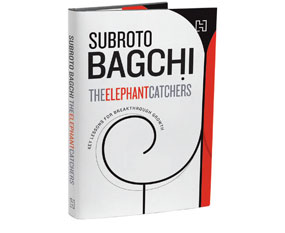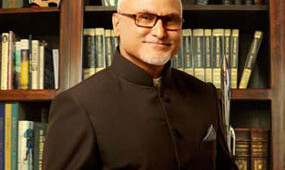 by Benedict Paramanand
by Benedict Paramanand
There’s been a spurt in business and motivational book publishing industry in India in the last five years. Interestingly, while reading books in print form is dying in the rest of the world, in India, it seems to be growing briskly. Many reasons are attributed to this trend. One is the demographic dividend – a section of the thousands of new job entrants are beginning to read. It’s also an indication of the search for insight and inspiration among the aspiring youth.
Increasingly, business books are being written by successful entrepreneurs and business leaders who are role models for aspiring Indians. Indians are entrepreneurial by nature and therefore love stories by and about entrepreneurs. Perhaps the more important factor is the new approach to book writing by the new-age writers – generous with credible anecdotes and the use of easy conversational language. Also, the cost of books has not gone up, relative to cost of most other things, making them accessible to a larger audience.
Subroto Bagchi may well be the leader of the pack of new-age business book writers. He already has a few bestsellers up his sleeve, the prominent one being ‘The High Performance Entrepreneur.’ ‘Go Kiss the World’ is a moving personal life story of how he beat all odds to make it where he is today – a founder of a $400 million IT solutions company, Mindtree Ltd, after a successful career with Wipro. His books can be enjoyed, digested and shared by a 25- year old budding executive out of a business school as much as a mid-career executive who is seeking answers for his state of being. The young IT, ITES, mobile app and e-commerce entrepreneurs relish Subroto’s books as he speaks their language. Subroto has mastered the art of blending almost a perfect brew of business reality, high performance imperative with integrity and soft spirituality. This is working well both for him and his readers.
His latest book ‘The Elephant Catchers – Key Lessons for Breakthrough Growth’ meets a dire need in India where millions of entrepreneurs, especially in the SME segment and in B-towns, are gripped with morbid fear of going from small to medium or from medium to large. They have big dreams but are weighted down by too many constraints – labor, capital, red-tape, corruption and more. It is easier in India to start a business and stay small than grow to any significant size. The ones that have done, with liberal exceptions, are well-established family-run businesses who recklessly diversify into everything around them.
Scaling the intellect
It’s great that the Confederation of Indian Industry is taking Subroto on a B-town circuit to mentor entrepreneurs out of their ‘small is beautiful’ world. Subroto is clear that small can still remain beautiful – but this has to be by conscious choice The Scale Debate just as going after scale is also about informed choice. The common factor between the two is how comfortable one is with either of the two.
The book touches almost all aspects of scaling through real-life examples, especially the intangible ones. Helping people to scale through a framework will be very useful since Indian entrepreneurs are yet to realize the power of happy and engaged employees. Often entrepreneurs think scaling is an external exercise of money and influence. Subroto’s key focus during his circuit may have to be ‘scaling of the intellect’ of the leaders themselves.
It’s a fact that a majority of entrepreneurs in India are comfortable with vernacular language – which is reflected in the robust growth of regional and Hindi language newspapers and magazines, as against declining growth of English publications – it could be a good idea to launch translated versions of ‘The Elephant Catchers.’ Not sure if the exact translation of the title in Indian language will work considering the class and religious symbolism attached to the gentle creature. Subroto may have to wear his thinking cap for once since it looked like he didn’t have to when he wrote the book – it flows effortlessly just like the way elephants swim across a river.
Does India love scale?
India is a country that has been not just comfortable but efficient with the concept of scale for several centuries. Starting from Asoka, the Guptas to the Mughal Empire – Red Fort, Taj Mahal – India has managed scale in mammoth proportion. In modern times, Dirubhai’s Reliance, the Tata Steel, TCS, the Amul story, the Kumbh Mela, the general elections, the Adhaar program are all massive and successful scale stories.
Subroto’s book is relevant largely to small entrepreneurs who are scared of scale not so much because they cannot but the system does not allow them to. IT and ITES, which Subroto represents, has scaled because the governments agencies did not put spokes into them. What most Indian entrepreneurs need today is liberal and non intrusive business environment and scale could happen on its own. Scale and entrepreneurship, as late Prof. C K Prahalad said, is more to do with imagination and less with constraints.











Recent Comments